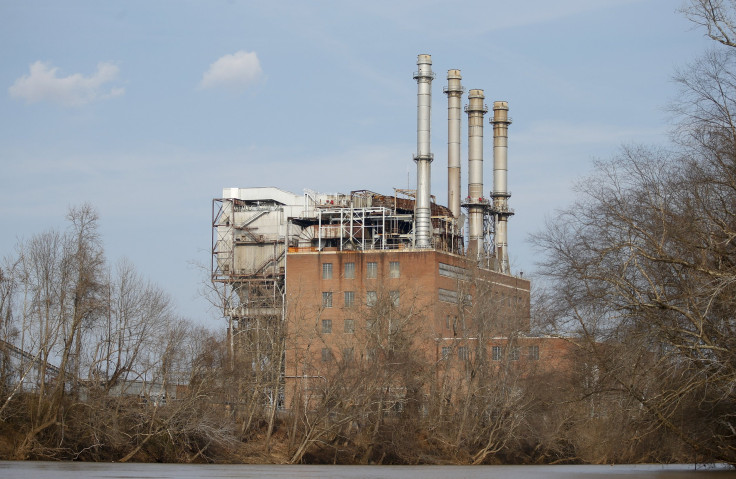North Carolina Authorities Allow Duke Energy To Release Pollutants Under Draft Permits

Duke Energy, the largest electric power holding company in the U.S., will be legally allowed to release pollutants from some of its coal ash storage sites in North Carolina under new draft permits issued by the state’s Department of Environment and Natural Resources.
Under the proposed modifications to the existing permits for wastewater discharges from the Allen, Marshall and Riverbend coal ash facilities near the city of Charlotte, Duke, which has 32 coal ash storage facilities in 14 sites across the state, will be allowed to discharge waste as an “interim step.”
“Under the Coal Ash Management Act, we will require the elimination of all discharges from every one of Duke Energy’s coal ash ponds in North Carolina,” Donald van der Vaart, secretary of the North Carolina Department of Environment and Natural Resources, said, in a statement released Friday. “But until the closure plans are formulated and approved, we must pursue this interim step of ensuring that existing discharges, some of which are necessary to ensure the integrity of the dams, do not compromise the water quality in our lakes and rivers.”
The new draft permits come just days after Duke announced that it had set aside $100 million to settle a federal grand jury investigation into the massive coal ash spill in the Dan River last year. The spill released up to 39,000 tons of coal ash -- rich in toxic heavy metals such as arsenic, selenium, chromium and mercury -- into the river, making it the third-largest coal ash spill in the country’s history.
The new permits will require Duke to monitor the leaks from its storage facilities to ensure that pollution does not exceed state water quality standards.
DJ Gerken, a lawyer at the Southern Environmental Law Center, told The Associated Press that the proposed permits would, in essence, make the “illegal discharges legal for a while.”
“They are issuing interim permits pending what they say will be total elimination of discharges at some undefined point in the future … ordinarily a compliance measure like this would have interim steps toward eliminating the illegal discharge -- not a vague promise for doing it,” Gerken reportedly said.
© Copyright IBTimes 2024. All rights reserved.






















